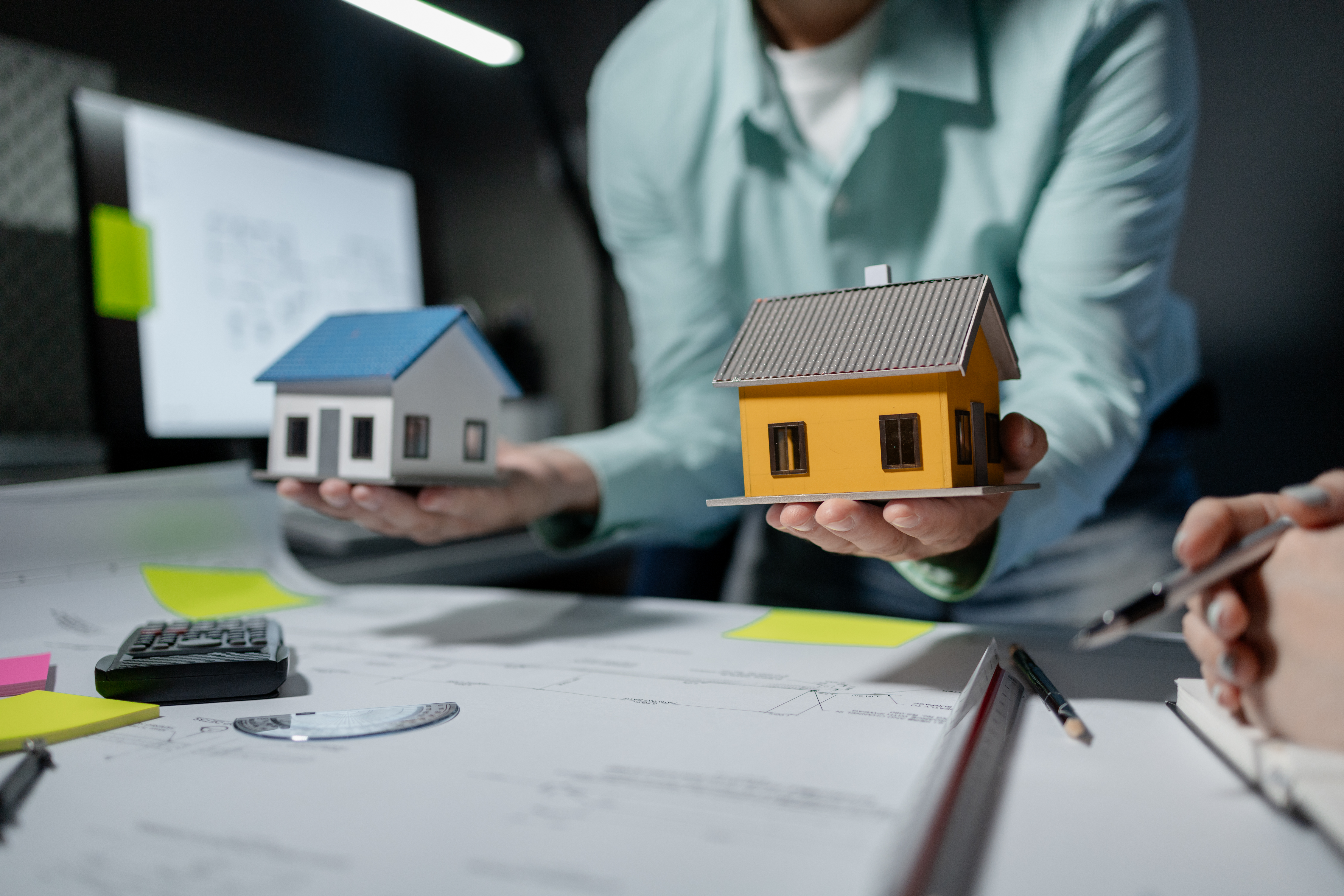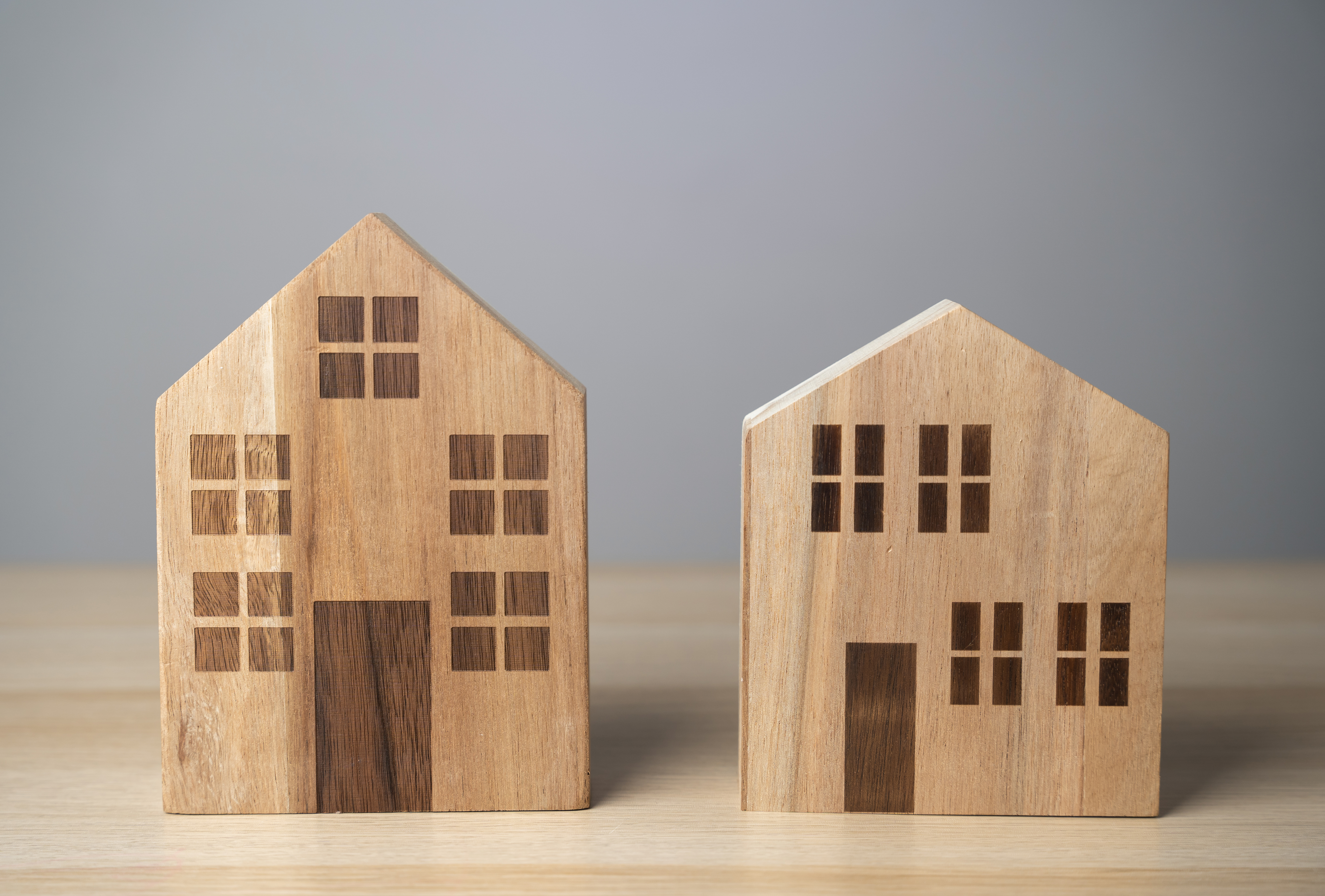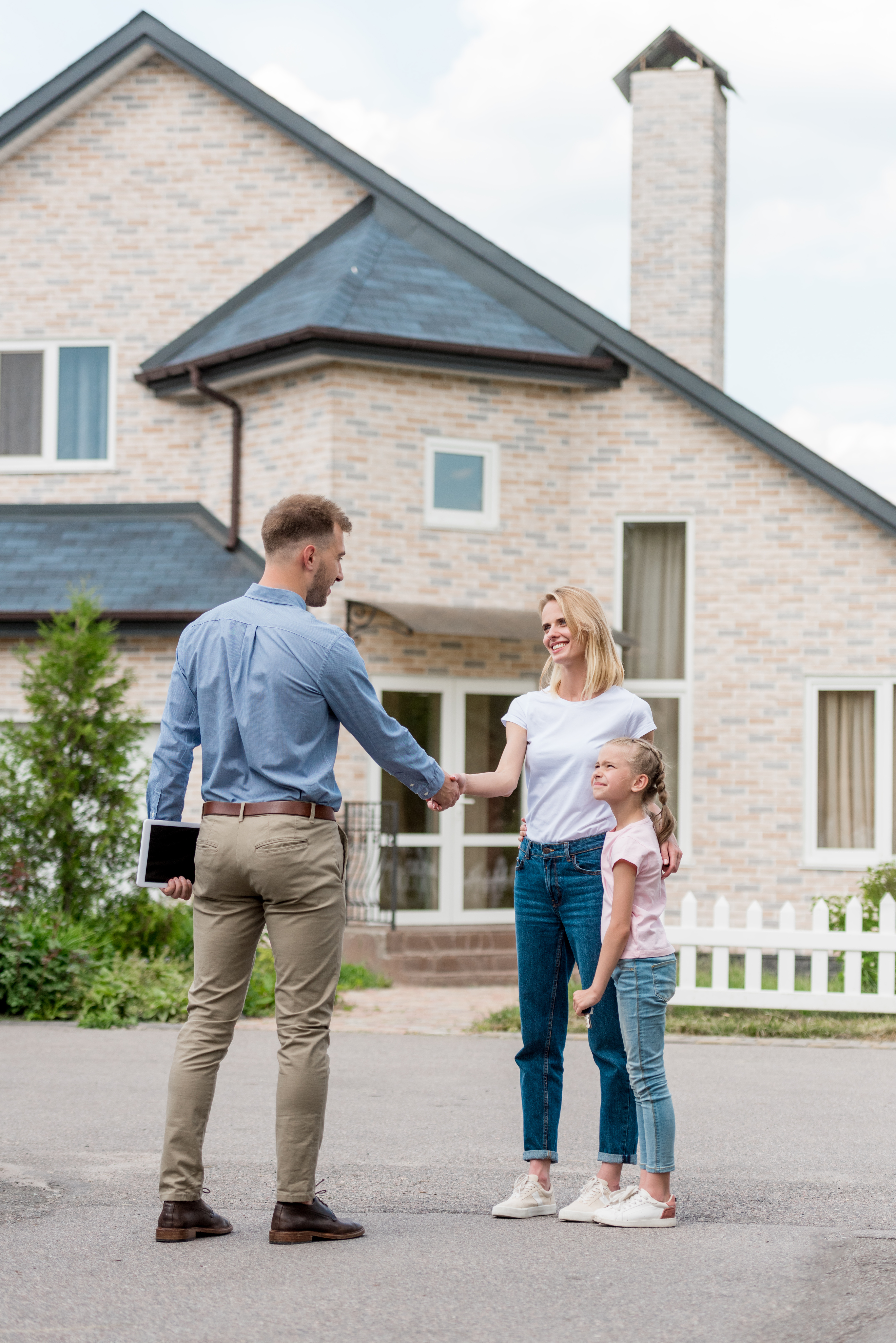Building vs Buying a Home: Which is Better?

Building vs Buying a Home: Which is Better?
Published at February 03 2025 by Bethany Pace
Have you ever wondered whether building or buying a house makes more financial sense? Is it cheaper to build or buy a house in today's market? At Nelson Design Group, we understand these questions weigh heavily on prospective homeowners' minds, especially given current real estate market trends and market conditions.
The numbers tell an interesting story - while the average cost to build a home in 2023 reaches $310,799, existing single-family homes command an average price of $394,100. Yet these figures only scratch the surface when considering if it's more expensive to build a house. Building costs fluctuate dramatically, ranging from $120,635 to $501,993 on average, based on your location and design specifications.
Let us guide you through the key factors, hidden costs, and practical considerations that shape this significant financial decision. Whether you're dreaming of a custom-built haven or considering a move-in-ready home, we'll help you make the choice that best suits your needs and vision, addressing the question: should I build or buy a house?
Factors in the Build vs Buy Decision

Building vs buying a home presents unique opportunities and challenges. Drawing from our three decades of experience in home design, we've identified crucial factors that shape this important investment decision.
Timeline Considerations
The construction journey varies significantly across regions and home styles. Single-family homes typically reach completion in 7.2 months, while custom designs demand 9 to 18 months of careful craftsmanship. Our clients in northeastern states often plan for 11-month timelines, though southern regions generally move faster, completing homes within 6 months. It's important to note that construction delays can impact these timelines, so flexibility is key when opting to build.
Location Impact
Location stands as the cornerstone of property value, both today and tomorrow. Properties nestled near schools, healthcare facilities, and shopping centers naturally command premium prices. We've watched neighborhoods with strong economic growth and planned developments consistently outperform other areas over time.
Smart location choices deliver more than convenience - they build lasting value. Take school districts, for example. Homes in top-performing districts typically sell for 20% more than similar properties in average districts. This knowledge drives our commitment to helping clients evaluate neighborhood safety, development potential, and economic stability before making their final decision.
Personal Preferences
The dream of crafting your perfect living space often tips the scales toward building rather than buying. Custom home construction opens doors to endless possibilities - from personalized floor plans that match your lifestyle to hand-picked amenities and energy-efficient features. You'll guide every choice, from building materials selection to design elements, creating spaces that truly reflect your vision.
Building new brings additional perks - modern technologies, updated systems, and fewer immediate maintenance concerns. Yet remember, this path requires greater involvement in decision-making, from contractor selection to construction changes. At Nelson Design Group, we walk beside you through each decision, ensuring your dream home becomes reality.
Financial Preparation Steps
Have you considered the financial groundwork needed for your home journey? Whether building or buying, understanding various financing options helps create a solid foundation for your project. Let us walk you through the essential financial preparations that pave the way to successful homeownership.
Down Payment Requirements
Your down payment needs vary significantly based on loan type. Conventional loans welcome homeowners with 3% to 20% down payment. Construction loans demand a more substantial commitment - typically 20% to 30% of your total project cost. For those exploring FHA loans, you might qualify with as little as 3.5% down, provided your credit score reaches 580 or higher.
Construction Loan Basics
Construction financing works differently than traditional home loans. These specialized loans typically span 12 to 18 months, releasing funds through scheduled disbursements as your home takes shape. During construction, you'll make interest-only payments, helping manage costs while your dream home comes to life.
Traditional Mortgage Options
Your path to homeownership might follow several financing routes:
- Conventional loans: Begin your journey with just 3% down
- FHA loans: Start with 3.5% minimum and good credit
- VA loans: Qualified veterans enjoy zero down payment options
- USDA loans: Rural home buyers may qualify for no down payment

Hidden Costs to Consider
Drawing from our decades of experience in home design, we understand how unexpected expenses can surprise first-time builders when deciding between building vs buying a home. Let us share insights that help create a realistic budget for your dream home.
Land Purchase Expenses
Land costs present the first major consideration, typically ranging from $3,000 to $150,000, varying with location, size, and property type. Our experience shows the wisdom in following the traditional rule - setting aside 25% of your total project budget for vacant land. For example, with a $200,000 project budget, you'd reserve $50,000 for land purchase.
Raw land often demands additional investment beyond purchase price. We've guided countless homeowners through this process, where clearing and grading costs typically fall between $1,377 and $5,748. Land grading averages $1.30 to $2.00 per square foot. Should existing structures need removal, prepare for demolition expenses between $3,000 to $25,000.
Permit Fees
At Nelson Design Group, we help clients navigate the complex world of building permits. Basic permits range from $150 to $2,000, with costs tied to home size and local regulations. Larger projects see permit fees consuming 0.5% to 2% of total construction costs.
Your project may require several permits:
- Electrical permits: $50 to $500
- Plumbing permits: $50 to $200
- HVAC permits: $250 to $1,500 for new installations
These expenses significantly shape your construction budget. Remember, municipalities require permits before breaking ground - skipping this step risks fines or project shutdown. Additionally, Homeowners Associations (HOAs) often bring their own design requirements, further affecting total project costs.
Utility Costs and Landscaping
When building a new home, don't forget to factor in the costs of connecting utilities and landscaping. Utility connection fees can vary widely depending on your location and the distance from existing infrastructure. Landscaping costs can also add up quickly, especially if you're starting from scratch on a new lot.
Making Your Final Decision
Have you reached the exciting milestone of choosing between building and buying your dream home? At Nelson Design Group, we've guided countless families through this pivotal decision. Your choice should reflect both your lifestyle vision and financial reality.
Decision Checklist
Drawing from three decades of experience, we recommend evaluating these essential factors when considering if you should build or buy a house:
- Financial readiness and loan qualification status
- Desired move-in timeline
- Location preferences and land availability
- Customization requirements
- Long-term maintenance expectations
- Renovation potential of existing homes
Pros and Cons of Building a House
Building a house offers several advantages:
- Complete customization of design and features
- Modern, energy-efficient systems
- Potential for lower maintenance costs in early years
However, there are also some drawbacks:
- Longer timeline to move-in
- Potential for construction delays and unexpected costs
- Higher upfront costs in many cases
Pros and Cons of Buying a House
Purchasing an existing home has its own set of benefits:
- Faster move-in process
- Established neighborhoods and mature landscaping
- Potential for immediate equity in rising markets
But it's not without challenges:
- Limited customization options
- Possible outdated systems or needed repairs
- Potential for hidden issues discovered during home inspection
Red Flags to Watch For
Our design specialists often remind clients to exercise caution when evaluating existing homes - watch for foundation issues, water damage, and electrical problems. For new construction projects, builders avoiding warranty discussions or resisting inspection requests should raise immediate concerns. We've seen particularly troubling situations with inconsistent specification answers or builders discouraging realtor involvement.
When to Choose Building
Building your custom home shines brightest when personalization tops your priority list. First-time buyers comfortable with construction processes and flexible timelines often find this path most rewarding. Those seeking energy efficiency benefit tremendously from new construction, as modern homes embrace updated environmental standards and efficient systems, reducing their environmental impact over time.
When to Choose Buying
Existing homes offer compelling advantages for certain situations. This path particularly suits first-time homebuyers seeking affordability and quick occupancy. Perhaps you're relocating for work or have children starting school soon - purchasing an existing home provides that predictable timeline you need. In competitive markets, be prepared for potential bidding wars, but also recognize the negotiation opportunities that may arise with motivated sellers.
Remember, your perfect choice balances immediate needs with long-term dreams. Standard builds typically span seven months, while existing home purchases close within 30-45 days. Custom construction delivers unmatched personalization but demands higher upfront investment and patience. Existing homes offer quick move-in timelines but might need updates to match your vision.

Looking to Build a Custom Home? Explore Custom Floor Plans from Nelson Design Group
Building or buying a home represents one of life's most meaningful investments. At Nelson Design Group, we've witnessed countless families navigate this decision successfully by carefully evaluating their unique circumstances, from financial preparedness to timeline requirements.
Each path offers its own rewards. Custom building delivers the freedom to create exactly what you envision - modern efficiency standards, personalized layouts, and hand-picked features. Yet this route demands larger upfront investments and extended timelines. Existing homes welcome you with established neighborhoods and quick move-in dates, though they might need updates to match your dream design.
Our design specialists recommend creating your personal checklist - must-have features, absolute deal-breakers, and clear financial boundaries. This focused approach helps you stay true to what matters most while exploring your options.
Ready to begin your home journey? Browse our collection of over 1,500 expertly crafted home designs available for immediate purchase. At Nelson Design Group, we take pride in offering free quotes, competitive pricing, and customization options that bring your vision to life. Contact our specialists directly at (870)931-5777 or email us - let us help you turn your dream home into reality.
FAQs
Is it financially wiser to build or buy a home?
The decision depends on various factors such as your budget, timeline, and personal preferences. Building offers customization but typically costs more and takes longer, while buying existing homes is usually quicker and may be more affordable. Consider your financial readiness, desired move-in timeline, and long-term goals when making this decision.
What are the key financial considerations when deciding between building and buying?
Important financial factors include down payment requirements, loan options, and hidden costs. For building, consider construction loan basics and permit fees. For buying, look into traditional mortgage options. In both cases, plan for an emergency fund and factor in long-term maintenance costs.
How long does it typically take to build a new home compared to buying an existing one?
Building a new home generally takes 6 to 12 months, with custom homes potentially requiring 9 to 18 months. In contrast, purchasing an existing home can be completed in just 1 to 3 months, making it a quicker option for those with time constraints.
What hidden costs should I be aware of when building a home?
When building, be prepared for expenses beyond construction costs. These may include land purchase expenses (ranging from $3,000 to $150,000), clearing and grading costs, and various permit fees. Additionally, factor in potential HOA requirements and the cost of connecting utilities.
How much should I budget for home maintenance and repairs?
Financial experts recommend saving 1% to 2% of your home's purchase price annually for maintenance and repairs. Additionally, it's wise to have an emergency fund covering three to six months of basic living expenses to handle unexpected home-related costs and other financial uncertainties.